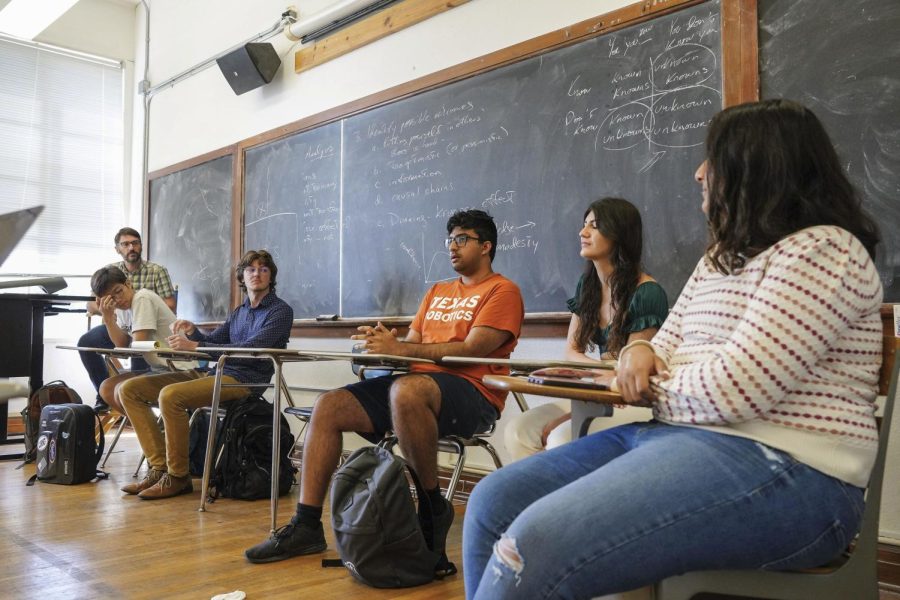Student researchers advise on how to get started in research field
The student research panel was hosted in Waggener Hall on Oct. 5, 2022. Students discuss their experiences conducting research as undergraduates and offer tips for how to get started.
October 7, 2022
Little projects make a huge difference, so being a part of something even if it’s not close to your initial interests will help when practicing research, a panel of student researchers advised.
An open meeting held Wednesday by Robert Reichle, director of the Office of Undergraduate Research, allowed six undergraduate students to speak on their experience with university research and advise how to begin work in research.
“It’s not like you need to be sitting out there right now envisioning the million things you’re going to do,” Reichle said. “You might stumble from one opportunity to the next, (and) that’s very cool.”
John Erard, a history and geography senior, said that using a research connecting site called Eureka helped him find projects and fuel his research career. Eureka allows professors to post if they’re in need of a research assistant and how to contact them if interested, he said.
“Once you work with a professor earlier in a lab, opportunities just grow out of that. … Once you get your first opportunity, (there’s) kind of like a snowball effect,” Erard said. “Now you have that on your resume and … that opens you up to become a much more competitive applicant.”
Computer science senior Pranav Atreya said what helped him starting out was searching the faculty list and emailing a small pool of professors that he was interested in doing research for, especially newer faculty members.
“What helped was targeting professors who are new to the University. Their labs are not as booked out yet, so they’re (potentially) looking for undergrads to help them with research,” Atreya said. “The professor that I’ve worked with was two years into the University.”
Working in bioscience research to convert amplified pools of RNA to DNA has allowed biology junior Nadia Khalil to learn techniques to improve her advanced research work, she said.
“My biggest advice is to not give up and always seek help and advice, because you will hit roadblocks, and you will need to seek other sources or advice to overcome them,” Khalil said.
David Park, a chemistry and neuroscience junior, said that even when changes to research arise, being open-minded about them will lead to more success.
“Although learning a whole new system was very difficult at first, it ended up working out well afterwards,” Park said. “You should always try not to be narrow-minded about anything in research. If you can find better stuff out there, then look for it, and you’ll find it.”
Khalil said while working in research, new learning opportunities appear and should be taken advantage of as a valuable experience.
“More often than not, you will have a lot of failures,” Khalil said. “What’s important is that you have to keep learning from that … and make sure that you’re understanding, ‘Okay, where have I gone wrong, and where can I go next?’”



